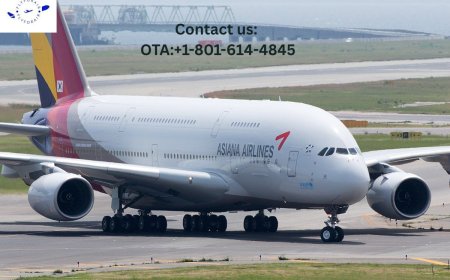How to Choose the Ideal Yoga Teacher Training Program in Rishikesh
Rishikesh, nestled at the foothills of the majestic Himalayas and blessed by the sacred Ganges River, is considered the birthplace of yoga.

Rishikesh, nestled at the foothills of the majestic Himalayas and blessed by the sacred Ganges River, is considered the birthplace of yoga. Each year, thousands of yoga aspirants from across the globe flock to this spiritual haven to deepen their practice, expand their understanding, and earn internationally recognized teaching certifications. But with countless yoga schools offering various programs, how do you choose the ideal Yoga Teacher Training (YTT) program in Rishikesh?
Whether you're seeking spiritual growth, a professional career, or personal transformation, selecting the right training is a crucial decision. Heres a complete guide to help you make an informed and mindful choice.
1. Understand Your Intention
Before researching schools, take a moment of self-reflection. Why do you want to pursue yoga teacher training?
-
Is it for personal growth and self-discovery?
-
Do you want to teach yoga professionally?
-
Are you looking to deepen your own asana, pranayama, and meditation practices?
-
Are you interested in the philosophical and spiritual dimensions of yoga?
Clarifying your intention will help you choose a program that aligns with your goals. Some courses emphasize spiritual immersion, while others are more anatomy-focused or geared toward career development.
2. Choose a Yoga Alliance-Certified Program
One of the most important factors to look for is Yoga Alliance certification. The Yoga Alliance is the most recognized global registry for yoga teachers and schools. Completing a 200 Hour Yoga Teacher Training in Rishikesh from a Yoga Alliance Registered Yoga School (RYS) ensures that your certification will be valid worldwide.
A certified program will cover all essential components, including:
-
Asanas (postures)
-
Pranayama (breathwork)
-
Meditation techniques
-
Philosophy and ethics
-
Anatomy and physiology
-
Teaching methodology
This certification will also allow you to register as an RYT (Registered Yoga Teacher), opening the door to teaching opportunities globally.
3. Evaluate the Curriculum Structure
While most 200-hour courses follow a similar framework, the depth and emphasis of each program can vary. Look for a well-balanced curriculum that not only strengthens your physical practice but also gives you a solid foundation in yoga philosophy, anatomy, and teaching skills.
A comprehensive YTT curriculum should include:
-
Hatha & Ashtanga Yoga: To develop a strong foundation in traditional practices
-
Pranayama & Meditation: To promote inner balance and focus
-
Yoga Philosophy: Including the Yoga Sutras of Patanjali, Bhagavad Gita, and yogic ethics
-
Teaching Practice: To build confidence in instructing and sequencing classes
-
Adjustments & Alignment: Learning to guide students safely and effectively
-
Ayurveda or Yogic Lifestyle Modules (optional): For holistic understanding
Dont hesitate to request a day-by-day breakdown of the schedule from schools to get a clearer picture.

4. Check the Credentials and Experience of the Teachers
The quality of a yoga teacher training program largely depends on the experience, authenticity, and dedication of its instructors. Read about the lead teacherslook for those who:
-
Are certified E-RYT 200/500 (Experienced Registered Yoga Teachers)
-
Have deep knowledge of yogic philosophy and scriptures
-
Embody the yogic lifestyle both on and off the mat
-
Have extensive teaching experience, especially in guiding international students
Authentic teachers not only teach but also inspire. They mentor, support, and help you evolve during the program.
5. Consider the Schools Reputation
Research reviews, testimonials, and student experiences. Reputable yoga schools often have a strong online presence and word-of-mouth following. Here are a few ways to gauge the reputation:
-
Read Google and Yoga Alliance reviews
-
Join yoga forums or Facebook groups and ask for recommendations
-
Look for consistency in feedbackpositive or negative
A trusted school will be transparent about its facilities, curriculum, fees, and teaching standards.
6. Assess the Location and Facilities
Rishikesh is home to numerous yoga schoolssome nestled near the Ganges, others tucked away in the quieter outskirts. Depending on your preference, you can choose a location that best suits your learning style:
-
Central Rishikesh (Laxman Jhula/Tapovan): More vibrant, close to cafes, shops, and temples
-
Upper Tapovan or outskirts: Quieter, more serene environment for introspective training
Facilities to consider include:
-
Clean, comfortable accommodation (shared/private)
-
Nutritious, sattvic vegetarian meals
-
Yoga halls with ample space and ventilation
-
Internet access (if needed)
-
Safe, supportive environment for international students
7. Budget and Value for Money
While affordability is important, avoid choosing a school based solely on price. Yoga teacher training is a transformative journeyyoure investing in your growth, health, and future.
Compare whats included in the fee:
-
Tuition and course materials
-
Accommodation and meals
-
Excursions or cultural experiences
-
Airport pick-up or other amenities
Many schools in Rishikesh offer excellent value without compromising on quality, especially those that are non-commercial and rooted in authentic yogic traditions.
8. Small Class Size and Personal Attention
Smaller batches allow for more individual guidance, feedback, and mentorship. Personalized attention can make a significant difference in your development, especially if you're a beginner.
Look for schools that limit class size to around 1520 students per batch.
9. Vibe, Energy, and Cultural Immersion
Sometimes, it all comes down to how the school feels to you. A good YTT program should feel welcoming, spiritually rich, and aligned with your energy.
Ask yourself:
-
Do I feel a connection with this place and its values?
-
Will this school support not just my physical practice but also my inner journey?
-
Is there a sense of community and care?
Choosing a program in Rishikesh also offers the chance to participate in Ganga Aarti, explore Himalayan temples, practice silence by the river, and immerse in Indias spiritual cultureall of which contribute to a life-changing experience.
Final Thoughts
Choosing the right Yoga Teacher Training Program in Rishikesh is not just about finding a schoolits about finding a path that resonates with your heart. From curriculum and certification to teachers and energy, every detail matters.
Take your time, do your research, and listen to your intuition. The right program will not only equip you with the skills to teach but also inspire a lifelong journey of learning, healing, and self-discovery.
Namaste and happy journeying.
Looking for a 200 Hour Yoga Teacher Training in Rishikesh?
Reach out to a certified and trusted school like Rishikul Yogshala, known for its traditional teachings, experienced teachers, and deep commitment to yogic values.




































